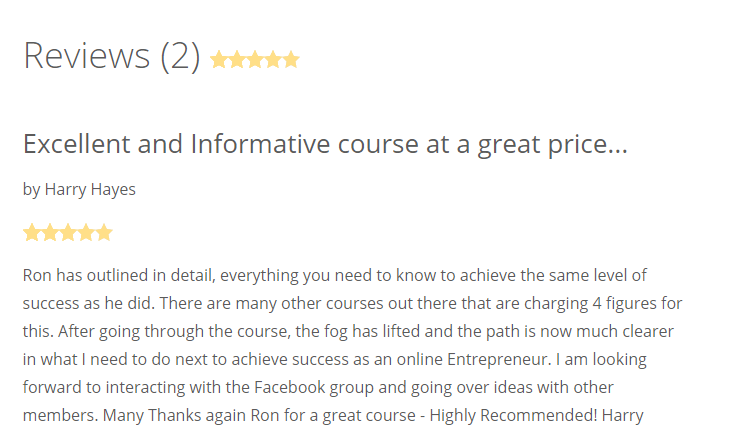30-second summary:
- Promote brand awareness if you want customers to know you exist.
- Collect social reviews and testimonials like you’re collecting candy.
- User-generated content builds authenticity which means higher conversions.
- Stay up to date on customer support so your leads are happy.
- Use the FOMO (fear of missing out) concept to your advantage.
Do you have a new content marketing agency or ecommerce business? Or are you getting irrelevant traffic that doesn’t convert from your marketing campaigns? Is your business model just not resonating with your audience?
Perhaps, it is time to shift your focus on Conversion Rate Optimization (CRO) and social media marketing.
Social media is where your audience lives these days. According to Oberlo, about 45% of the world population is on social media.

Source: Oberlo
But note that getting traffic from social media is only winning half the battle of scaling your business.
Regardless of whether you’ve got a SaaS startup, a cute pet toy company, or even if you’re just a drop shipper, you need to convert that traffic to drive sales.
And it will happen only when your audience takes the desired action like buying a product or signing up to your newsletter.
Thus, your business should focus on increasing the number of visitors who complete a conversion.
The process is known as Conversion Rate Optimization (CRO).
Here’s what Skylar Reeves, founder of Ardent Growth, has to say about the benefits of CRO
“One of the biggest benefits of conversion rate optimization is the sheer ROI it can deliver without a linear increase in budget. There are often many small changes you can make to your marketing or advertising strategy that can increase your conversion rate dramatically – and that can make a huge difference to your annual revenue.”
By integrating CRO and social media, your business not only gets good traffic but increases sales as well.
Let’s have a look at how you can leverage integrated CRO and social media for your business:
1. Create brand awareness
Online awareness about your brand will be created when people find you on search engines, via paid advertising, earned media, social media, link building, and more.
For instance, you can use social channels like Facebook to create brand awareness since it’s the most widely used social channel with 2.6 billion monthly active users.
Flipping the script, you can earn great brand mentions on popular blogs in your space, increasing brand awareness to relevant audiences:

Source: uSERP
If your company primarily caters B2B, an awesome tactic would be utilizing LinkedIn automation tools to generate leads from the popular social networking service. If you’re struggling to plan out your brand-building strategy, then try using product roadmap software.
Platonik’s Fraser McCulloch says,
“There are an estimated 7.5 billion searches a day on Google, the world’s biggest buyer research tool, figure out what problems prospects are searching for and give them solutions; that’s a better way to build a brand that people want.”
When you set up a social media account, you can optimize your account descriptions and keep it active and interactive with relevant content that converts. It will help you to get more traffic to your landing pages and, more than likely, conversions.
Mobile Marketer found out that 90% of people purchase from brands they follow on social media.
And of course, by connecting with your audience in real-time via social channels, you will be building a good relationship with them.
2. Get social reviews
CEO of Transcription Outsourcing LLC Ben Walker backs the importance of social reviews quite bluntly
“What I do — and what you should do — is use social proof to help convince new clients that your service is up to par.”
There is a good 72% percent of people who won’t take any action until they read reviews. The same poll suggests that 5% of users say they don’t trust businesses that don’t have reviews.
Search Pros founder Isaac Hammelburger has utilized customer reviews on his site and has been met with what seems to be an obvious success
“I’ve been able to increase lead gen calls by more than 20% after I started including reviews and testimonials on my site. Most companies can also boost their bottom line by leveraging this aspect of credibility.”
Clearly, social and client reviews can be a great tool to boost conversions. And it isn’t just for leads. Reviews are especially important for online course creators as well to establish both trust and credibility of what they’re trying to sell to their audience.

Source: OneHourProfessor.com
However, there are different ways to collect social reviews. First and foremost, use Google Analytics to check and focus on getting reviews on the platforms that are getting the most traffic.
If you are using the Facebook channel, ensure to activate the Review Tab and make it visible.
To do that, go to ‘Page Settings’ and scroll down to the ‘Templates and Tabs’ option.
Find the Reviews tab and turn it on.

Source: Facebook
Once you do that, whenever your customers review your product or service, the ratings will appear on Google searches.
Most importantly, make sure to respond to all the reviews for better customer experience and to receive even more reviews.
Plus, don’t hesitate to ask for reviews one-on-one.
Other tactics you can try are using an email marketing service to ask newsletter subscribers for feedback, offering incentives, placing CTAs on your site asking for reviews, and promoting the reviews you already have.
Also, don’t delete the negative reviews. It shows that you are transparent. Instead, use negative reviews to your advantage by addressing the issues and apologizing for the poor user experience.
3. Create user-generated content
There’s no doubt that the content that comes directly from users in your niche market has immense ability to drive sales. In a Stackla study, 80% of people said that user-generated content has a huge impact on their purchasing decisions.
Plus, your consumers are 2.4 times more likely to see your content as authentic if it is user-generated as compared to content generated by your business.

Source: Stackla
This means that user-generated content also succeeds in building customer trust and establishing your brand as a leader in the field.
Running a hashtag contest on Instagram, asking intriguing questions by creating polls and quizzes are also great ways to create user-generated content.
For instance, an animal pet supplies retailer in the USA generated over 1,500 entries in 25 days by holding a hashtag contest.

Source: Petco Instagram
It’s quite apparent that user-generated content is an excellent way of generating traction and boosting conversion rates.
Also, share your user-generated content on Instagram stories since they are designed to drive purchases. The combo of the immediacy of Stories and the staying power of Highlights will let you create a permanent album. This way, potential buyers can keep viewing the user-generated posts until they make a decision to head to your website to make a purchase.
You can also use Facebook to post engaging videos with the possibility of going viral.
4. Offer superior customer support
Companies are not only competing with prices and products but customer support and building relationships as well.
You could use communication platforms like Ringblaze and other Vonage alternatives that can help with offering a competitive customer experience.
But these days, customers are not only willing to do business with companies that offer great customer support but are also willing to pay more.
In fact, 69% of American customers claim they would spend more money with companies that provide better customer service.
With the presence of social media, offering great customer support has never been easier.
When you offer customer support on social channels, you can be present wherever your customers are. You just have to make it a point to answer all the queries that your customers post on social media as quickly as possible.
And trust me, your customers do want a quick response.
Look. 42% of consumers expect a reply from a brand on social media within 60 minutes, and well over half of consumers are less likely to buy from a brand that leaves questions on social media unanswered.
You don’t want that to be the case with your brand!
Thus, whenever any issues crop up and users are dissatisfied with your service or product, they might leave negative feedback. Ensure to act on them and resolve the issue as fast as possible.
Moreover, you will have to know when to take an issue offline. There are instances when you might require personal data from the customer, or you will need to answer a series of questions. In such cases, it’s a better idea to move the conversation offline.
5. Optimize the landing page experience
It is known that mobile conversion rates are lower than desktop. You get more traffic from mobile, but it lags behind the desktop when it comes to conversions.
There are different reasons for this.
In addition to having more options to design a more attractive page layout on a desktop, it’s easier to navigate a site and view images on a bigger screen. Also, consumers are more likely to purchase on the desktop when the process is less complicated.
In this case, you can use CRO to improve the landing page experience for the target audience coming from social media.
A company found out that their lead rate started boosted by 19% after they designed a site explicitly for mobile visitors coming from a social media site.
So consider designing a landing page specifically for mobile visitors coming from social media sites. It will definitely help boost engagement.
6. Create a FOMO
If statistics are anything to go by, over half of social media users suffer from FOMO (Fear of Missing Out).

Source: Skyword
You can use this phenomenon to your advantage by deliberately creating FOMO and driving sales.
For instance, you can add an element of social proof to your regular product image for a Facebook ad to drive common-phenomenon-versions. Even if your audiences don’t know you, seeing a celebrity endorsement or a review from real users will pique their curiosity which may generate shares and leads.
Another trick to make your content go viral is to create a sense of urgency by putting a time limit on the product or service you’re trying to sell.
It will make people excited to buy your product, and they wouldn’t want to miss out on the opportunity. You can use terms like “Only 24 hours left!” or “Offer ends tonight!”
Here’s an example by an Amazon seller:

Source: Amazon
Ecommerce giant Amazon uses their Deal of the Day and countdown timer trick to influence customers to take action right away.
Wrapping up
In this digital age, where people mostly spend their time online on social networking sites, it will benefit your business immensely to leverage the power of integrated CRO and social media.
As every marketing campaign starts by creating awareness, using social media channels to build brand awareness, and implementing social media strategies like getting social reviews, UGC, optimizing the landing page experience, improving customer support, and creating FOMO.
If implemented correctly, CRO and social media integration will lead to better conversions and increased sales.







